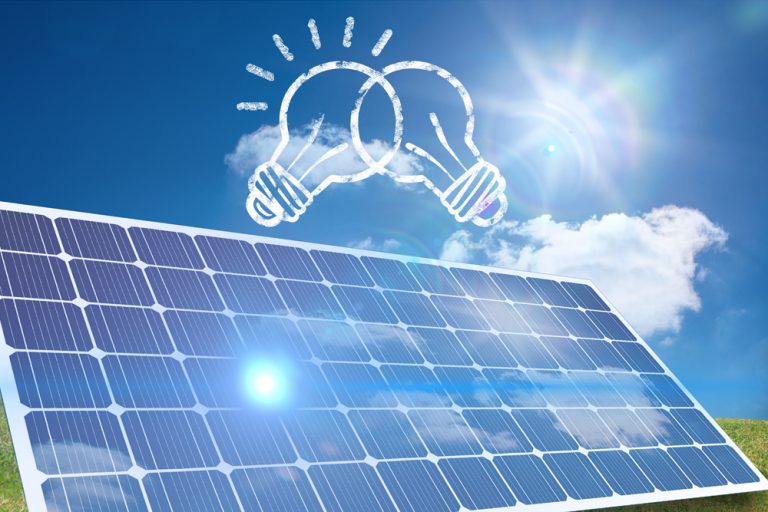

WASHINGTON, D.C. – The U.S. Department of Energy (DOE) announced up to $125.5 million in new funding to advance solar technology research. Through the Office of Energy Efficiency and Renewable Energy (EERE) Solar Energy Technologies Office, DOE continues to advance research and development of solar technologies that reduce the cost of solar, increase the competitiveness of American manufacturing and businesses, and improve the reliability of the grid.
“Solar energy has grown tremendously in the last decade,” said U.S. Secretary of Energy Dan Brouillette. “The research and development supported by this investment will build on the technological foundations necessary to continue the solar industry’s growth and preserve American energy choice, independence, and security. These investments directly support the Trump Administration’s all-of-the-above energy strategy.”
In addition to today’s solar funding announcement, yesterday EERE announced up to $43.8 million to advance geothermal research and development. These funding opportunity announcements (FOAs), along with a $300 million investment in sustainable transportation made in January 2020, total more than $463 million making this the largest EERE investment made this early in the fiscal year over the past six years.
“The Trump Administration continues to expeditiously announce funding opportunities for the growing demand for clean and renewable technologies on the grid,” said Under Secretary of Energy Mark W. Menezes. “Progress made in cybersecurity and grid integration build on previous FOAs, and including new topics to help the agriculture community and folding in AI technologies and machine learning, only help bolster the need for solar technologies now, and in the future.”
DOE’s Solar Energy Technologies Office Fiscal Year 2020 Funding Program (SETO 2020) will help to continue the steady decline in solar costs. In addition, projects will tackle key emerging challenges facing the solar industry, including enabling solar and storage, enhancing cybersecurity protections, manufacturing, developing solar-powered microgrids, and siting solar with agriculture.
“We’re excited about these new funding opportunities for renewable power, transportation, energy efficiency, and manufacturing,” said Daniel R Simmons, Assistant Secretary of Energy Efficiency and Renewable Energy. “We look forward to working with the National Labs and private sector partners to advance clean, affordable, and reliable energy for American families and businesses.”
Funding will support advancements in the following areas:
• Photovoltaics (PV) Hardware Research – $15 million for 8-12 projects that aim to extend PV system lifetimes and reduce hardware costs of solar systems made of silicon solar cells, as well as new technologies like thin-film, tandem, and perovskite solar cells.
• Integrated Thermal Energy Storage and Brayton Cycle Equipment Demonstration (Integrated TESTBED) – $39 million for 1-2 projects that will develop a test site to accelerate the commercialization of supercritical carbon dioxide power cycles, a key component of low-cost concentrating solar power plants.
• Solar Energy Evolution and Diffusion Studies 3 (SEEDS 3) – $10 million for 6-8 projects that will examine how information flows to stakeholders to enable more efficient decision-making about solar and other emerging technologies, such as energy storage.
• Innovations in Manufacturing: Hardware Incubator – $14 million for 7-9 projects that will advance innovative product ideas from a prototype to a pre-commercial stage, with an aim for products that support a strong U.S. solar manufacturing sector and supply chain.
• Systems Integration – $30 million for 7-11 projects that will develop resilient community microgrids to maintain power during and restore power after man-made or natural disasters, improve cybersecurity for PV inverters and power systems, and develop advanced hybrid plants that operate collaboratively with other resources for improved reliability and resilience.
• Solar and Agriculture: System Design, Value Frameworks, and Impacts Analysis – $6.5 million for 4-6 projects that will advance the technologies, research, and practices necessary for farmers, ranchers, and other agricultural enterprises to co-locate solar and agriculture.
• Artificial Intelligence Applications in Solar Energy with Emphasis on Machine Learning – $6 million for 8-12 projects that encourage partnerships between experts in AI and solar industry stakeholders to develop disruptive solutions across the value chain of the solar industry.
• Small Innovative Projects in Solar (SIPS): PV and Concentrated Solar Power (CSP) – $5 million for 15-20 projects that advance innovative and novel ideas in PV and CSP that can produce significant results within the first year of performance.
For more information on the Solar Energy Technologies Office, please visit their website.
The San Marcos City Council received a presentation on the Sidewalk Maintenance and Gap Infill…
The San Marcos River Rollers have skated through obstacles after taking a two-year break during…
San Marcos Corridor News has been reporting on the incredible communities in the Hays County…
Visitors won't be able to swim in the crystal clear waters of the Jacobs Well Natural…
Looking to adopt or foster animals from the local shelter? Here are the San Marcos…
The Lone Star State leads the nation in labor-related accidents and especially workplace deaths and…
This website uses cookies.